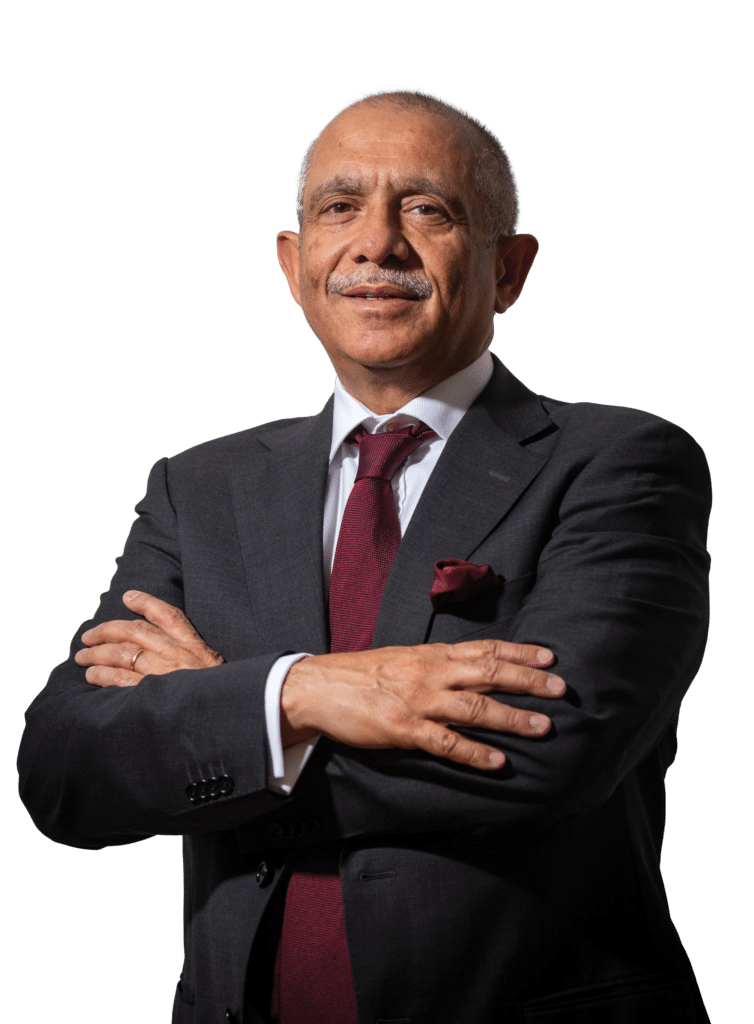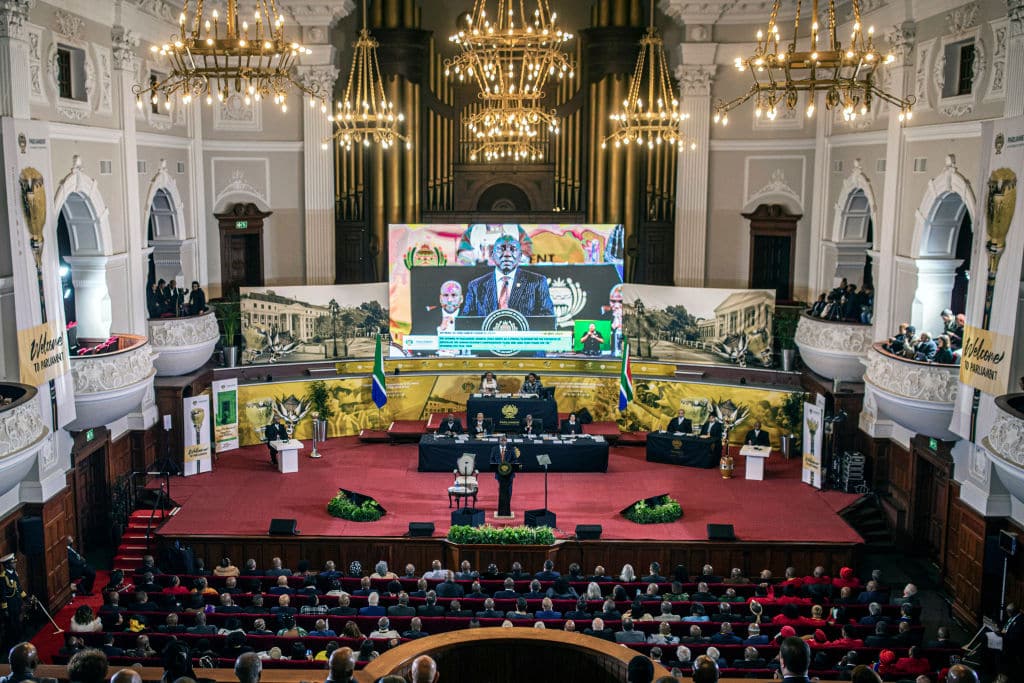I stopped watching sitcoms in favor of mainstream U.S. news channels on television recently and will perhaps be forced to continue this habit until the U.S. elections are over. We expect election dramas in emerging democracies but to see a circus (for lack of a better word) in the world’s number one economy has been unexpected and disappointing. I am not qualified to comment on the politics and choices made by the citizens of any country, but I do believe that America is not being represented by its best, Democrat or Republican. What, however, is worrying are the consequences of the choices people make in the U.S. at the end of this year and its impact on global geopolitics. I will be equally surprised if either Donald Trump or Joe Biden will make a speech in the Senate to match Rishi Sunak’s speech as the leader of the opposition in the British parliament.
Closer home, an outcome that we were anxiously awaiting was the result of the South African elections. There were no surprises for anyone including members of the ruling African National Congress (ANC) as despite some being in denial, the writing has been on the wall for a long time. The long-awaited change from a single party (ANC) rule has finally arrived. It’s a new dawn for South African politics and an inevitable pathway to a multi-party democracy.

I have been speaking about this outcome since I first raised it at an event in Stellenbosch in Cape Town, South Africa, in early 2008. I had drawn a parallel to the maturing democracy in India. The conversations ended with an agreement to disagree. Over the last three elections, I continued alerting my friends about this and gradually over the last decade, I could see that people had come to align with my point of view but through their own analysis.
I would like to recap my Publisher’s Note in the December 2021/January 2022 issue of FORBES AFRICA.
I quote: “The only area that will perhaps follow the time-tested path of slow transformation is our political system, particularly in South Africa. There was general disbelief that a political system like the ANC could ever be unseated. The Congress in India was almost annihilated in the 2019 elections when the party failed to secure 10% in parliament. It took 72 years of dynasty politics for the party to be completely routed through implosion. Although India is a complex country and much larger, the two countries (South Africa and India) share a similar history of struggle and consequent freedom.
Loading...
“For a country to be a true democracy it must have multiple parties to provide checks and balances. The political landscape in India changed to a few national parties and strong state-level parties; an important factor today are the alliances and coalitions in states that provide a national consensus for the ruling party in parliament. After the Congress party lost national consensus in 1977 (30 years after India’s independence from British rule), there was a long era of coalition governments, the most successful of which was the Bharatiya Janata Party-led alliance from 1999 to 2004. Sadly, the Congress is today the sinking ship of Indian politics. There is no better lesson in political history than this to learn from.
“The ANC has had a run for 27 years, but the recent municipal elections have shown that the party is gradually losing its shine. The reasons are self-explanatory, and the proverbial writing is on the wall. The cracks have formed, and the implosion is slowly but surely progressing. The people of South Africa are not happy with the governance of the state and will continue to voice their dissatisfaction through the ballot. There is a lot of confusion in people’s minds about loyalty to the past or embracing what is right. The lower voter turnout evidences the fact that people would rather not vote against the ANC and give their leaders a chance to correct the course for progress. In the meantime, the era of coalitions has arrived and so has the emergence of new political parties that will provide the governance needed to take this great nation forward. The new political parties are all led by former members of the ANC who have chosen to move away from the status quo and bring accountability to the existing government. Some of these parties have outstanding leaders who have the potential to provide leadership to the country in the not-so-distant future. The worst mistake any leader can make is revel in past glory, live in denial and become complacent about the future”. Unquote.
It took the Indian National Congress 30 years to lose majority in parliament; it has coincidentally taken the ANC exactly 30 years to lose its majority in parliament. Post the election and after having accepted the verdict of the people of South Africa, the ANC has embarked on a mission to form the national government and the provincial government in the state of Gauteng. The Government of National Unity (GNU) has started putting together a framework for how the country will be managed over the next five years. There are far too many ideological differences between the various parties forming the GNU. My own view is that after the honeymoon period, if there is one, the disagreements will start and issues around policy frameworks, governance and personal agendas will eventually bring these coalitions down, leading to caretaker governments, re-elections, and a prolonged period of uncertainty.
Where to from here?
What South Africa needs now is a stable bureaucracy, functional state enterprises (particularly power, ports, airports, railroads and infrastructure) and a committed private sector. The bureaucracy in South Africa has not been allowed to develop and a lot of senior administrators are political appointees or nominees. A lot could have been forgiven in 1994 as the historic imbalance caused a skills deficit within the Black population. The blame now, however, must be taken by the ANC for not building a strong and resilient administrative service. This gap will be compounded in the coming decades. The bureaucracy will be required to provide continuity and consistency particularly in the absence of a stable government. I see this as a major impediment in the coming years.
The private sector, however, has remained very resilient in South Africa and to my mind, will see the country through the next decade. The business community has a strong foundation particularly banking, insurance, financial services, mining, manufacturing, communications, IT, tourism, agriculture, retail, and a lot of other core sectors. The infrastructure in the country is well-established and the power situation seems to have turned the corner. The banking sector will need to be a lot more proactive with business and ensure that funding is not constrained. There are a lot of questions right now but irrespective of what lies ahead, one must go long on South Africa as the fundamentals of the country are very strong and the people are extremely good. The potential of the people needs to be harnessed through a well-integrated and technologically-advanced education sector.
Meeting capacity-building goals and improving unemployment statistics, particularly youth unemployment, is currently a major problem in the continent and needs to be dealt with expeditiously. A decade back, I started a thought leadership summit on the future of education in Africa. We started this dialogue as we had identified education as an area that needed immediate attention from governments. There are many challenges facing the sector that include, but are not limited to, funding requirements, student loans, quality, access to education, governance, research, innovation, technology, teacher training, skills mismatch and politics.
Funding currently remains the most significant gap in the education ecosystem. There are various reports on the funding requirements in Africa. It is projected by UNESCO that countries must spend 4% to 6% of their GDP on education. Most countries in Africa do not meet this basic goal. Looking at the demand-supply gap, there are over 9 million classrooms and over 9.5 million teachers needed in Africa by 2050. This requires an annual investment of over $40 billion. In addition, there is a need for billions of dollars of investments in technology and digital transformation. Where will this money come from?
During the African Development Bank (AfDB) meetings in Nairobi, Kenya, in May this year, there were many sessions on capacity-building and the role of the private sector in education. The number one impediment to the development of the sector is the shortage of funding and wherever it is available, it is short-term capital at high commercial rates of interest. As an example, lending rates in Ghana are between 26% to 30% a year and these rates are not sustainable for any business, let alone education. The cost of borrowing cannot be passed on to students, who in the absence of a framework for student loans, are already finding it difficult to pay school and college fees. The education sector requires long-term investments with realistic expectations on short-term returns. Governments cannot support the entire education value chain and without funding, the private sector will never be able to participate and play its role in a meaningful manner. This is a complex issue and needs to be addressed as capacity-building impacts all sectors. The gestation period is long for education projects and therefore, governments and the African Union must create a policy framework to catalyze the sector. If this is not addressed urgently, unemployment will continue to rise, especially given the rapid population growth on the continent.
In the words of former U.S President Franklin D. Roosevelt, “No country, however rich, can afford the waste of its human resources. Demoralization caused by vast unemployment is our greatest extravagance. Morally, it is the greatest menace to our social order”.
Loading...
